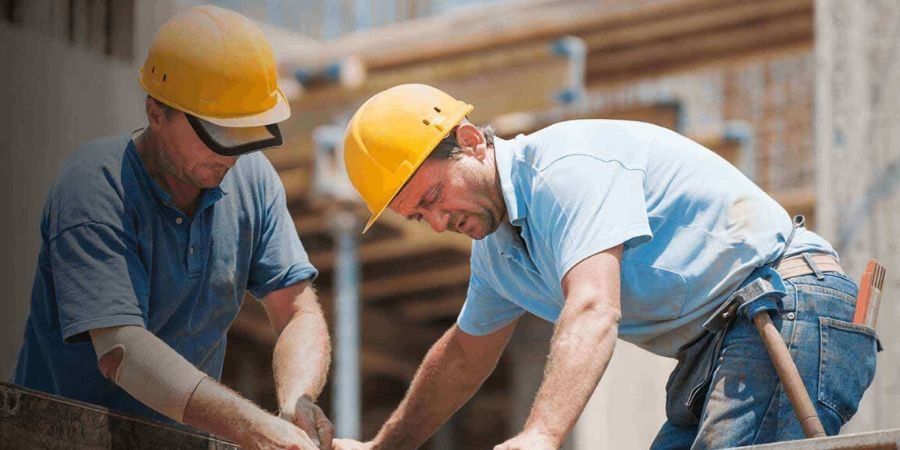MSMEs in the Construction sector

This is the first blog of the 2-part series blog.
In this first part, we shall discuss the issues in the construction industry that can magnify if the workforce isn’t skilled and educated, and how can they threaten the safety conditions at a workplace.
For the construction business, Micro, small and medium enterprises (MSMEs) are the one of the strongest drivers of economic development and employment – in job creation, innovation, and entrepreneurship. Reason being, there is a tendency among the large-scale construction firms to outsource the supply of goods and services. E.g. building materials and equipment are purchased or hired from small-scale enterprises, specialized services are provided by subcontractors, and labour by labour agents.
As MSMEs in construction are preferred for their specialized services, ‘outsourcing’ through subcontractors and other intermediaries is now more than a norm – it is perhaps the need. MSMEs can be one of the powerful instruments to generate job opportunities – they are capable to maintain real employment growth.
But over-the-time, attracting new, skilled and educated entrants is a major problem for MSMEs. Lack of opportunities for trainings, skill development, job security and sustainable living contribute to this very issue. For MSMEs, it becomes difficult to meet safety and quality requirements, to change their product or service mix or to rapidly scale up when there is a demand.
This inability to attract workers and invest in training them has serious repercussions for the productivity and quality of construction services and for the ability of contractors to satisfy their clients’ needs. Thus becomes a reason of concern to both employers and workers.
It also has a profound effect on occupational health and safety – if the workforce is left untrained and unskilled. In terms of safety, the reality on ground is that accidents and injuries occur frequently, and these problems virtually cut across all the construction sites. Workers employed under different subcontractors have the construction site in common. Some of them fail to provide a safe, conducive working environment while in some cases workers use the facilities inappropriately.
This single factor adds on to the intricacies of a construction process, and the result is, control on safety in the activities is lost.
All of this amplifies risks at a workplace – such practices have implications to the workers themselves, the construction companies and even the societies, at large.
Enhancing MSMEs skills and capacity
Introducing MSMEs to skill development programs is a much-needed step in this direction. Simply due to lack of skill recognition and institutional guidance – the need for standards provider (eg. Construction Skill development Corporation of India) that governs and addresses the workforce issues, their skills and education will be taken care of.
The government’s endeavour for a world-class infrastructure has triggered investments in the highways sector. According to an IBEF report, the total amount of investments in road sector were estimated to reach 1.58 trillion in 2019 alone, and to accomplish the $ 5 trillion economy, highways sector in the next 5 years will see an investment of 15 lakh crore to provide world-class roads that include 22 expressways.
While roads and highways are the lifeline of any economy, a skilled workforce remains a lifeline and essence to a construction industry. For these created jobs, workforce that remains aware of safe practices and latest skills is beneficial.
Contracting firms can play their part – they can organize forums where such information can be passed on to the small-scale enterprises. They can share best practice skills through indirect trainings, and create awareness about the policies and practices in the construction industry.
Targeted assistance, both in terms of training and investment, is necessary to upgrade them and make MSMEs ‘partnership-ready’ and workers ‘job-ready’.
Long-term workforce retention and continuous trainings through realistic efforts is of primary importance – it will place the construction industry in a position to respond to sudden upturns.
In our next blog from this II-part series – we will talk about mechanisms that would be necessary to enable the skill and employment driven economic progress



It will serve the concern better if training can be offered so as to address the the problem and please trying to organize a sponsorship to fund the training…
Excellent idea
Nice to read your blog regarding the construction sector!
Hii,
This is great and awesome post for me. i loved to read your blog. it’s really-really amazing. thanks for inspired me by your blog.